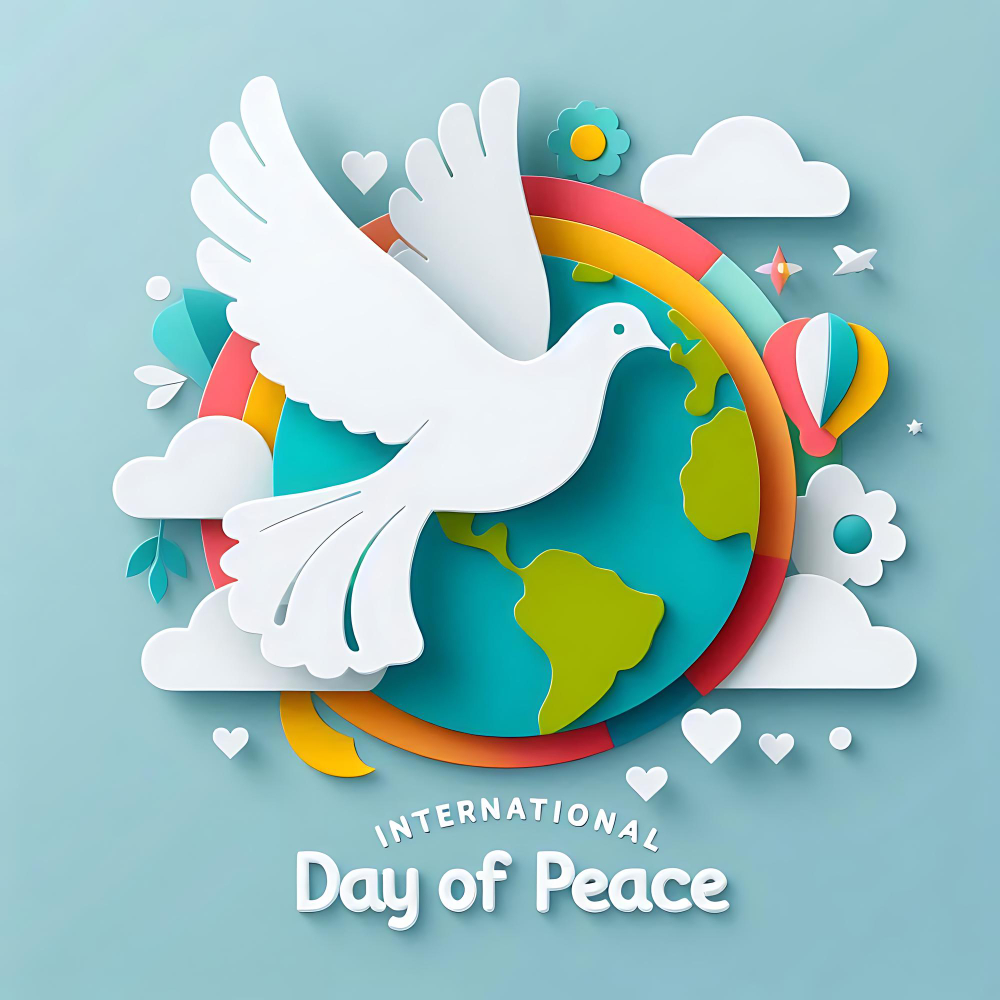The International Day of Peace is dedicated to promoting harmony, understanding, and unity among nations worldwide. Established by the United Nations, it reminds us of the universal desire for a more peaceful world.
It’s time to put on your Navy hat, press play on your favorite American anthem, and dive into this guide to the International Day of Peace.
What Is the International Day of Peace?
The International Day of Peace, observed annually on September 21st, dates back to 1981. The United Nations General Assembly declared it a day of global ceasefire and non-violence.
The primary goal of this day is to provide a globally shared date for all humanity to commit to peace above all differences and contribute to building a culture of peace. Through various activities and events organized worldwide, the International Day of Peace aims to raise awareness about the importance of peace and cooperation.
The Pivotal Role of Peace in Global Unity
Peace is the key to fostering global unity. It is the foundation on which nations can come together, overcome differences, and work towards common goals.
Peaceful conflict resolution and open dialogues build trust, paving the way for collaboration and understanding. Peace is a unifying force that transcends borders and ideologies, bringing people together in a shared pursuit of a better world.
The Ripple Effect of Peace
Like a stone cast into a still pond, peace creates a ripple effect extending far beyond its initial impact. Communities that experience peace are more resilient, prosperous, and inclusive.
This ripple effect can lead to positive changes in various aspects of society, from improved economic opportunities to enhanced social cohesion. By nurturing peace at the local, national, and international levels, citizens set in motion a chain reaction of goodwill and cooperation.
Nurturing Harmony at Individual and Community Levels
Peace isn’t just a global concept — it starts with each citizen in their daily lives and interactions. Nurturing harmony at the individual and community levels involves practicing empathy, understanding, and respect for one another.
By fostering a culture of peace within communities, people create a supportive environment where differences are celebrated and conflicts are resolved through dialogue and collaboration. You can contribute to a more peaceful world through small acts of kindness and compassion, one interaction at a time.
Overcoming Challenges to Peace
While pursuing peace is noble, it is not without its challenges. Deep-rooted conflicts, political tensions, and social injustices can hinder the path to peace. Overcoming these obstacles requires a concerted effort from individuals, communities, and nations.
By addressing the root causes of conflicts, promoting dialogue, and seeking common ground, citizens can pave the way for reconciliation and understanding. It is essential to listen to different perspectives, acknowledge past grievances, and work toward sustainable solutions prioritizing peace and cooperation over discord.
Celebrating Diversity and Cultivating Empathy
Diversity is a strength that enriches the tapestry of humanity. Celebrating cultural, ethnic, and ideological diversity fosters mutual respect and understanding among individuals and communities. By embracing differences and recognizing each person’s value, it is possible to create a more inclusive and harmonious society.
Cultivating empathy, the ability to understand and share another person’s feelings, is key to building connections across borders and promoting peaceful coexistence. Empathy allows people to see beyond our perspectives and forge meaningful relationships based on compassion and mutual respect.
Peacebuilding in Action
Peace is not merely a lofty ideal. It is a tangible goal that requires active participation and engagement. Peacebuilding initiatives worldwide demonstrate collective action’s power in resolving conflicts and promoting harmony.
From grassroots movements to international peacekeeping efforts, there are numerous examples of successful peacebuilding endeavors that have significantly impacted communities and nations. By supporting peacebuilding projects and advocating for peaceful resolutions to conflicts, we can contribute to a more peaceful and unified world.
Fostering Future Generations of Peacemakers
The future of peace lies in the hands of the next generation. Empowering youth to become agents of peace is crucial in building a sustainable culture of harmony and understanding.
Education is vital in nurturing young minds and instilling values of tolerance, compassion, and conflict resolution. Providing opportunities for young people to engage in peacebuilding activities, learn about global issues, and develop their leadership skills equips them with the tools to contribute meaningfully to creating a more peaceful world.
Our Collective Journey Towards a Unified World
Reflecting on the significance of the International Day of Peace, it’s important to remember that peace is not a passive state but an active choice made daily. By overcoming challenges, cultivating empathy, and empowering future generations, citizens can contribute to a world where conflicts are resolved peacefully, differences are embraced, and harmony prevails.








Leave a Reply